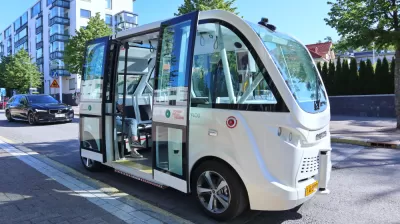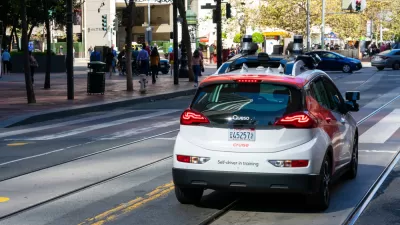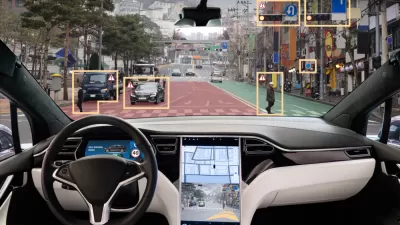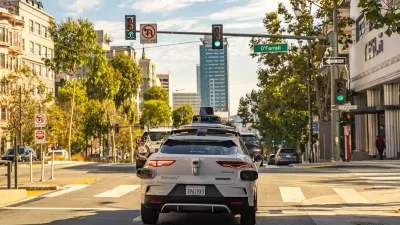The time to craft a comprehensive set of regulations governing safety, privacy, accessibility, and equity is now.

In an op-ed in Next City, Yonah Freemark argues that the United States urgently needs new regulations governing autonomous vehicles. Freemark outlines the potential benefits of AVs: improved safety, more time for commuters, expanded access to transportation. “But there’s no guarantee these benefits will be achieved,” Freemark continues.
A botched AV deployment could result in more pedestrians exposed to traffic crashes. AV camera systems — essential to allow these vehicles to navigate the streets — could invade peoples’ privacy. And AVs, like current ride-hailing services, could offer less equitable access to mobility for people with low incomes, while producing more traffic than ever.
Freemark points to new research from the Urban Institute that shows how federal, state, and local regulations can guide the rollout of AVs to maximize benefits and minimize harms. Important steps include comprehensive driving tests aimed specifically at autonomous cars, regulations around privacy, and minimum service requirements to ensure equitable distribution of commercial AVs like those used by ride-hailing companies.
FULL STORY: Without New Regulations, Self-Driving Cars Could Make Our Transportation System Even Worse

Trump Administration Could Effectively End Housing Voucher Program
Federal officials are eyeing major cuts to the Section 8 program that helps millions of low-income households pay rent.

Planetizen Federal Action Tracker
A weekly monitor of how Trump’s orders and actions are impacting planners and planning in America.

Ken Jennings Launches Transit Web Series
The Jeopardy champ wants you to ride public transit.

California Invests Additional $5M in Electric School Buses
The state wants to electrify all of its school bus fleets by 2035.

Austin Launches $2M Homelessness Prevention Fund
A new grant program from the city’s Homeless Strategy Office will fund rental assistance and supportive services.

Alabama School Forestry Initiative Brings Trees to Schoolyards
Trees can improve physical and mental health for students and commnity members.
Urban Design for Planners 1: Software Tools
This six-course series explores essential urban design concepts using open source software and equips planners with the tools they need to participate fully in the urban design process.
Planning for Universal Design
Learn the tools for implementing Universal Design in planning regulations.
Ada County Highway District
Clanton & Associates, Inc.
Jessamine County Fiscal Court
Institute for Housing and Urban Development Studies (IHS)
City of Grandview
Harvard GSD Executive Education
Toledo-Lucas County Plan Commissions
Salt Lake City
NYU Wagner Graduate School of Public Service





























